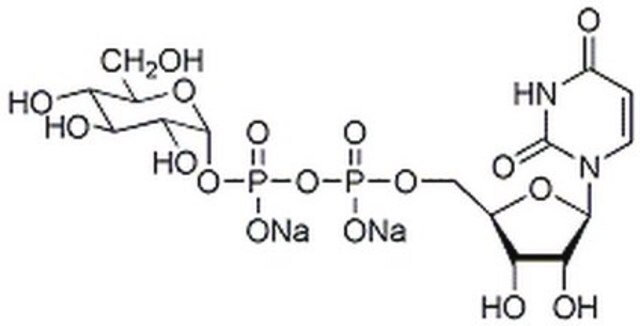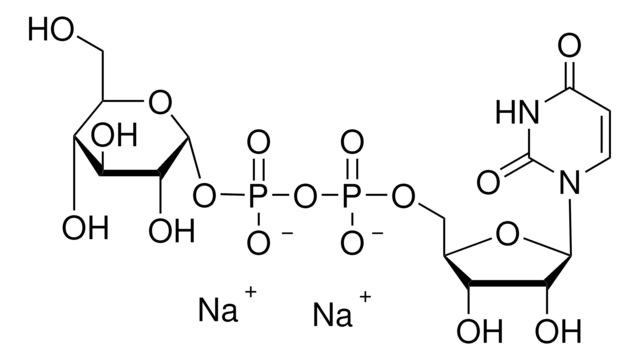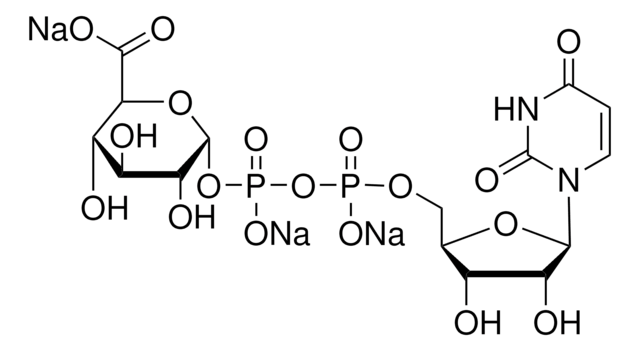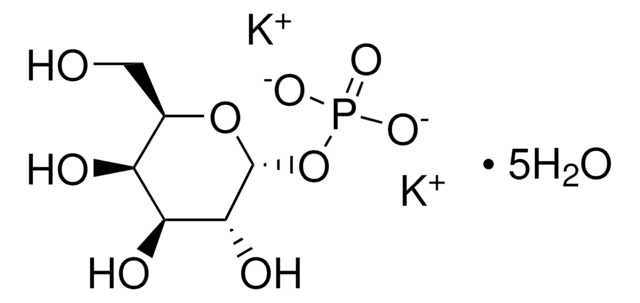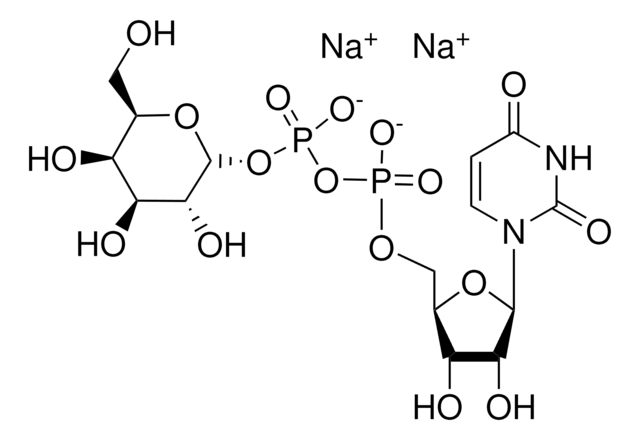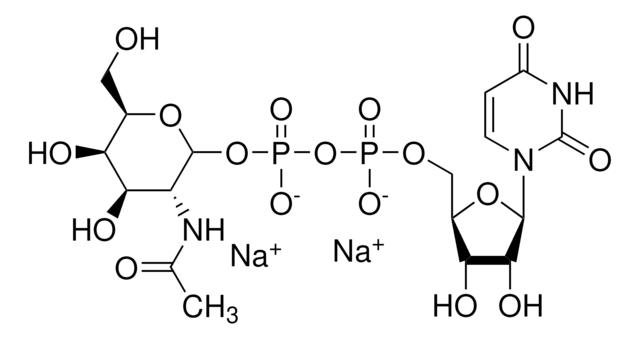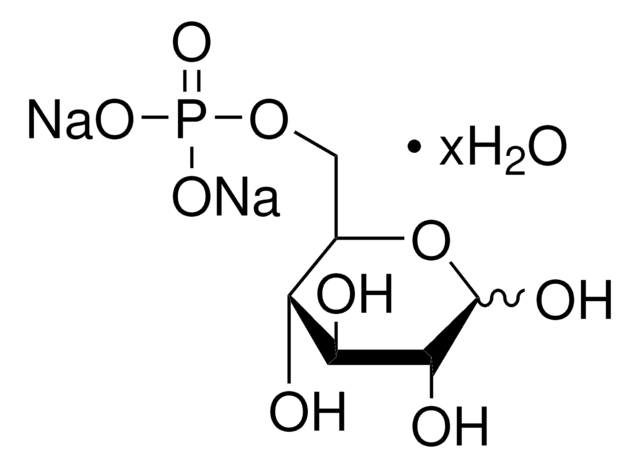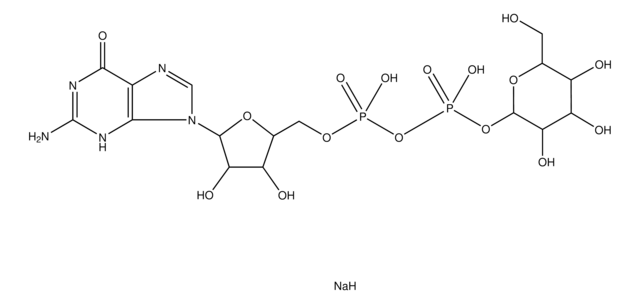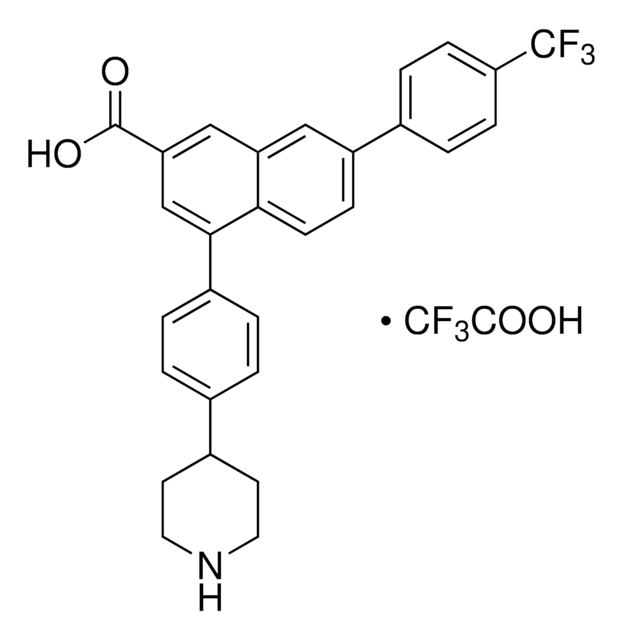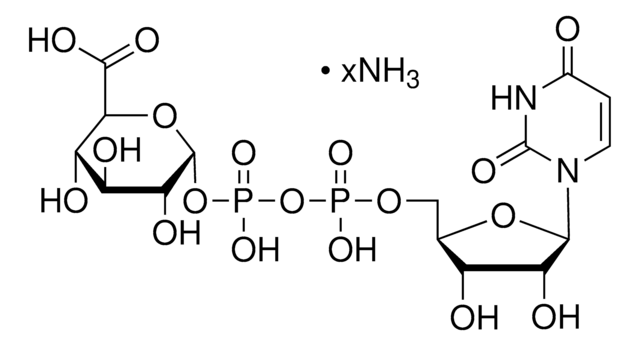U4625
Uridine 5′-diphosphoglucose disodium salt hydrate from Saccharomyces cerevisiae
≥98%
Synonyme(s) :
UDP-Glc hydrate, UDPG hydrate
About This Item
Produits recommandés
Source biologique
Saccharomyces cerevisiae
Pureté
≥98%
Forme
powder
Température de stockage
−20°C
Chaîne SMILES
O.[Na+].[Na+].OC[C@H]1O[C@H](OP([O-])(=O)OP([O-])(=O)OC[C@H]2O[C@H]([C@H](O)[C@@H]2O)N3C=CC(=O)NC3=O)[C@H](O)[C@@H](O)[C@@H]1O
InChI
1S/C15H24N2O17P2.2Na.H2O/c18-3-5-8(20)10(22)12(24)14(32-5)33-36(28,29)34-35(26,27)30-4-6-9(21)11(23)13(31-6)17-2-1-7(19)16-15(17)25;;;/h1-2,5-6,8-14,18,20-24H,3-4H2,(H,26,27)(H,28,29)(H,16,19,25);;;1H2/q;2*+1;/p-2/t5-,6-,8-,9-,10+,11-,12-,13-,14-;;;/m1.../s1
Clé InChI
SRHFBUUOPANXBG-WSIJJEQHSA-L
Vous recherchez des produits similaires ? Visite Guide de comparaison des produits
Description générale
Application
- for the PpIRX10 enzyme activity from Arabidopsis thaliana
- in radiometric assay of glycosyltransferases (GTs)
- in uridine diphosphate glucose (UDP-Glc) 4-epimerase assay in Arabidopsis thaliana samples
Actions biochimiques/physiologiques
Code de la classe de stockage
11 - Combustible Solids
Classe de danger pour l'eau (WGK)
WGK 3
Point d'éclair (°F)
Not applicable
Point d'éclair (°C)
Not applicable
Équipement de protection individuelle
Eyeshields, Gloves, type N95 (US)
Certificats d'analyse (COA)
Recherchez un Certificats d'analyse (COA) en saisissant le numéro de lot du produit. Les numéros de lot figurent sur l'étiquette du produit après les mots "Lot" ou "Batch".
Déjà en possession de ce produit ?
Retrouvez la documentation relative aux produits que vous avez récemment achetés dans la Bibliothèque de documents.
Les clients ont également consulté
Articles
The presence of multiple functional groups and stereocenters in complex carbohydrates makes them challenging targets for the organic chemist.
Glycosyltransferases were initially considered to be specific for a single glycosyl donor and acceptor, which led to the one enzyme-one linkage concept. Subsequent observations have refuted the theory of absolute enzymatic specificity by describing the transfer of analogs of some nucleoside mono- or diphosphate sugar donors.
Notre équipe de scientifiques dispose d'une expérience dans tous les secteurs de la recherche, notamment en sciences de la vie, science des matériaux, synthèse chimique, chromatographie, analyse et dans de nombreux autres domaines..
Contacter notre Service technique